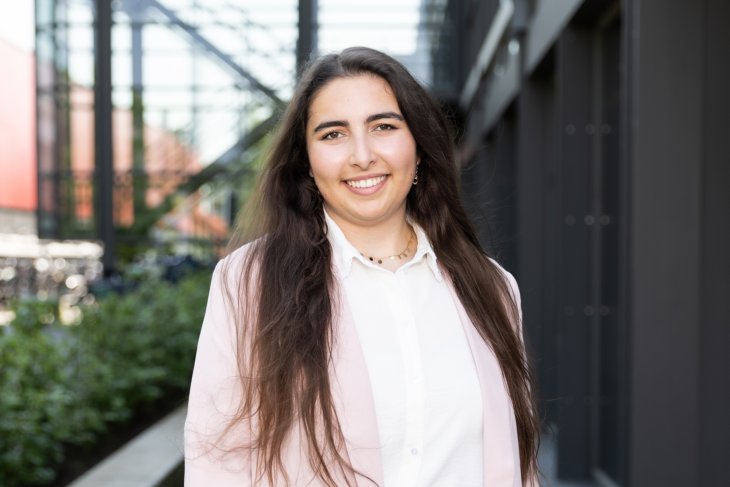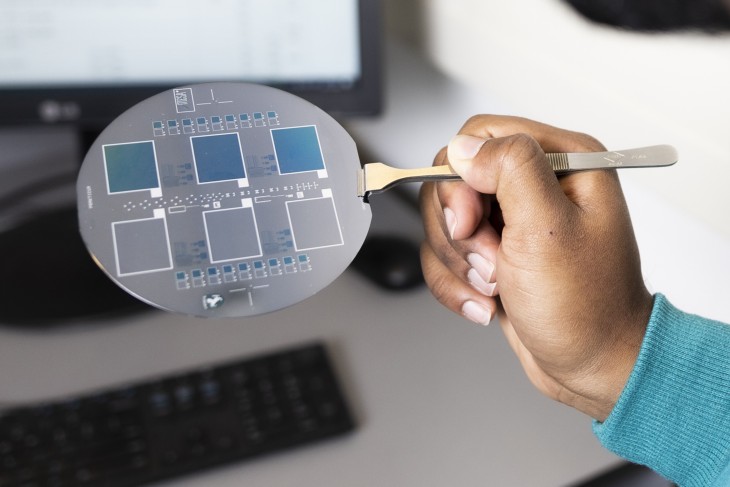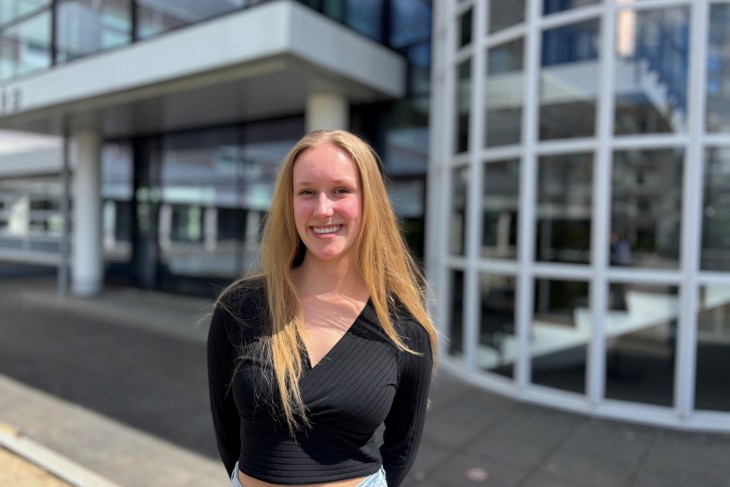"I’ve always wanted to make a difference in society, and ever since I discovered mathematics, this dream has only grown. Whether it's optimising the scheduling and management of surgeries or improving luggage check-ins, boarding systems, and flight schedules so that passengers can travel faster from Amsterdam to New York, I want to use mathematics to improve things in society. That’s why, after I completed the Bachelor's in Applied Mathematics, the most logical path was to continue with the Master’s in Applied Mathematics.
Optimal solutions
In this master’s, you get to specialise in a certain field. I chose the specialisation in Operations Research because I enjoyed those topics in my bachelor’s: it’s exciting that I can use maths to make things run smoother. Operations research is about analysing and optimising all kinds of processes in business and society. Think about optimising train schedules or the logistics of a distribution centre. Operations research helps you figure out the best ways to improve those systems.
I'm most interested in transport and logistics, so I like exploring how to optimise aviation logistics or train schedules. For example, how will adding a new train station affect the overall network? How can I minimise passengers’ waiting times?
You use mathematical theories to solve real-world problems, analysing issues creatively and thinking about them from different angles. Consider a public transportation system where buses often arrive late or are not synchronised with each other, causing longer waiting times for passengers: you use what you’ve learned in lectures to find ways to improve it.
From games to complex problems
In my courses on stochastic processes and Markov decision processes, I learned some pretty complex mathematical theories. Then, I applied them to create an AI for the game Connect Four. If you don't know Connect Four, it’s a board game where two players take turns dropping coins into a grid, trying to get four in a row. We built a model where the computer always wins, which was fun.
The main point of this project was to learn how to build those kinds of models and get an optimal solution. It’s similar to how algorithms like Google Maps work, where the system constantly calculates the best route to your destination. This project taught us to make decisions and optimise outcomes: skills we can apply to real-life scenarios like solving a complex logistical problem.
As part of the master’s, you get to take courses offered through the national Mastermath programme, where Dutch universities team up to offer advanced maths classes. Every Monday during my first semester, I travelled to Utrecht for classes: it was a great way to connect with and learn from other maths enthusiasts.
Equations and jam sessions
“Student life is about more than just studying, and it’s awesome that the campus is vibrant with opportunities to pursue your interests. For instance, I’ve recently joined the university basketball association. It’s fantastic because, after a lecture, I can be on the court in just five minutes, training and playing matches.
Apart from that, I play music with a group of friends. We have our pop and rock cover band and use the music and cultural facilities at the Vrijhof on campus to practice. We have some exciting gigs coming up, like performing at the Sports Gala. Maths is a significant part of my life, but music and basketball are my biggest passions, and the university offers the perfect environment to balance my studies and interests, so I can explore what makes me happy.”



